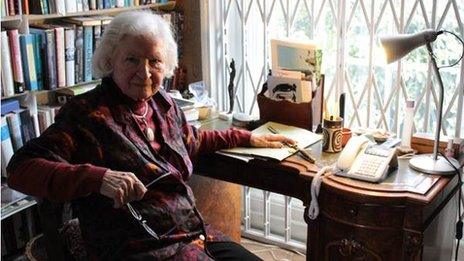Top 10 tips for being a TV boss
- Published
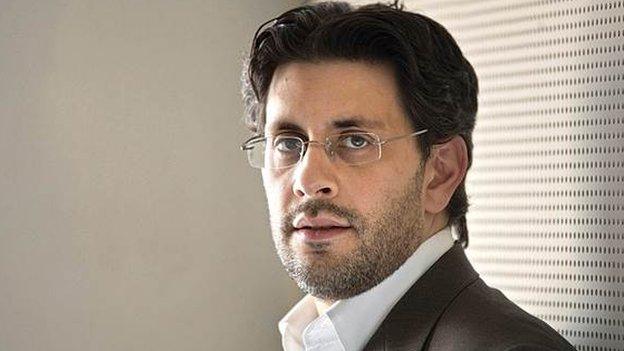
Danny Cohen is the BBC's director of television and is responsible for all the content on its four main channels.
Other senior TV roles on his CV include controller of BBC One, controller of BBC Three, head of E4 and head of Channel 4 documentaries.
Here are his top 10 tips for becoming a successful TV boss.
1.Watch a lot of TV
I do watch a lot of television, but I love TV and always have, so I don't find it a chore watching lots of it, it's important in my job to watch as much as possible.
You've got to know what the competition are doing, as well as what your own channels are producing, so it is important to watch a wide range of different channels and different genres. Watch television from abroad as well, so you see what the trends are, particularly in America.
I think there's great drama from America and I think there's great drama from Britain and the wonderful thing for everyone is that they don't have to choose between the two. I think it's a bit of a false debate when people talk about which is better.
2.Don't be fussy, just get a foot in the door
Don't expect your first job to be your dream job in television and I wouldn't be too fussy. It's a very competitive industry, so getting a foot in the door is the first big step, and I think showing a lot of initiative is really important.
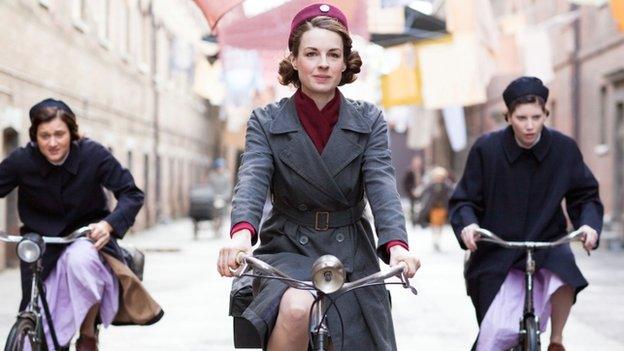
Danny Cohen's commissions for BBC One include Call The Midwife
Lots and lots of people want to work in television and lots of people want to work for the BBC so competition to get that first job is really tough. But it's a bit like a walled city - it's quite hard to get over the walls, but once you're in, if you do a good job, show initiative, work hard and are creative, you can then move around the city with relative ease.
Other opportunities will present themselves to you. That first step of getting over the wall is hard, but you've just got to keep pushing and keep climbing.
3.Quality is just as important as ratings
A number of things are important in my role. We make things spending public money, so I want as many members of the public as possible to enjoy what we make.
At the same time, we want to make incredibly high quality programmes and make sure there's a great range of things to watch.
So the amount of people watching is very important to me, but quality and a programme's freshness are just as important.
You can't always please all of the people all the time.
Not every show you do works, but I don't think anyone has ever deliberately tried to make a programme that didn't work, so you just have to support the people who make them and hope that the next one is brilliant.
4.Care about storytelling
You've really got to care about storytelling. In every genre, whether it's drama, comedy, factual or current affairs, the way you communicate a story is the most important thing. That's as true of factual programmes as it is of scripted programmes.
Observe how other people and other programmes use storytelling effectively, that's really important. Learn to not only watch, but understand what the competition is doing, know what matters right now and develop an instinct for what great television is.
You learn all the time in this job and so in a way you get to continue your education by working in television, which I love about the job.
5.It's not all about you and what you like
When you think about ideas, don't just think about what you like and what you're interested in, try and think about what lots of people might be interested in.
There will be things that you personally feel passionate about, but you have to be able to ask yourself whether it is interesting to enough other people, or is it just really interesting to you.
People have different tastes and interests, so what you want to do is broadcast a really good range of good quality programmes.
6.Learn to switch off
I'm quite good at switching off. If you really want to be at the top of your game creatively, you need to get away from your work sometimes. I don't think the way we are all digitally switched on all the time is necessarily very good for your creativity.
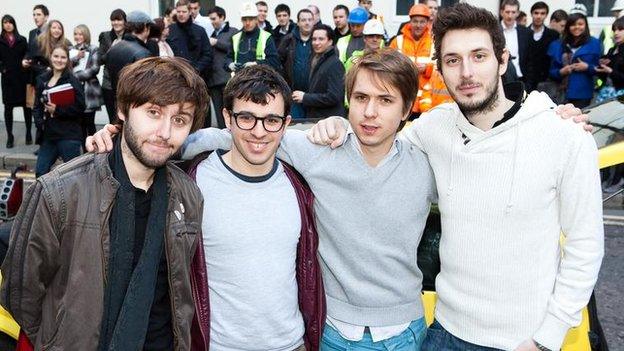
The Inbetweeners was a big hit for Channel 4
I think you are better at your job if you have proper breaks, proper holidays and you switch off from time to time, because that's how you get yourself refreshed.
7.Develop a thick skin but learn from mistakes
You have to be thick-skinned in my role because the BBC is criticised a lot. The key is to be able to separate out what is legitimate and fair criticism and what is just BBC bashing. It's important to take the legitimate criticism seriously and see what you can learn from it and not worry too much about the other stuff.
We're not a perfect institution, we won't get everything right, so getting feedback on what we can do better is always a good thing.
The truth is, when you commission a programme, you never know with certainty whether it is going to be a hit. If people say they do, I don't believe them. Some programmes work and some don't and you have to just accept that as part of the creative process.
8.Inform, educate and entertain
Sometimes people try and come up with new mission statements for the BBC, but nobody has ever come up with a better one than John Reith's "inform, educate and entertain". It's such a good, clear, simple, important set of values for the BBC.
It's really lovely when you have played a small part in something becoming a big hit. As a commissioner you only play a small role in that, but it's a good feeling when you've spotted something that becomes a hit.
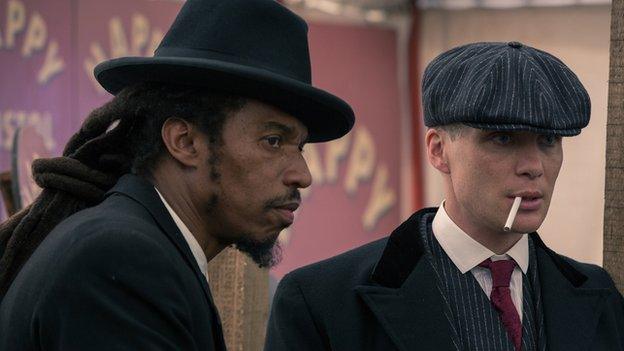
It's a great time for TV drama, for example Peaky Blinders, says Cohen
Things like Call the Midwife and The Inbetweeners were really exciting to be involved with.
British Drama and BBC drama is especially strong at the moment, whether its Sherlock or Doctor Who, Peaky Blinders or Eastenders, it's all amazing and I don't think there is a broadcaster in the world who wouldn't be immensely proud of the range and quality of the BBC's drama output.
9.Don't get distracted by the politics of an organisation
Never get distracted by the politics around you in an organisation. Just focus on making good programmes. My boss when I was at Channel Four said that to me once, and it is very good advice - just focus on making good programmes and ignore the politics.
I've always tried to do the job I'm doing really well and not worry too much about what happens next. Just do the job you are doing to the best of your ability and enjoy it, then things will happen.
If you plan too far ahead, then things never are as you expect them to be, but if you do the job you are doing really well then other doors will open up for you.
10.Don't be rude, it's only TV
Work very hard, care a lot about storytelling, use your initiative, think about the audience rather than just your own ideas and try to be a good listener.
It's important to be a people person in television, because you do a lot of things working with teams so it is very different from being a writer where you are on your own with a piece of paper.
Television is a team sport and you've got to be able to work effectively with people. I hope I'm not scary. I sometimes try to be clear, but I don't think you've got any right to shout or be rude to anyone, it's only TV.
- Published1 November 2014
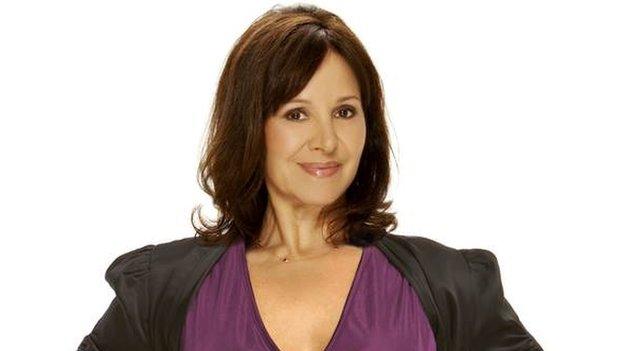
- Published25 October 2014
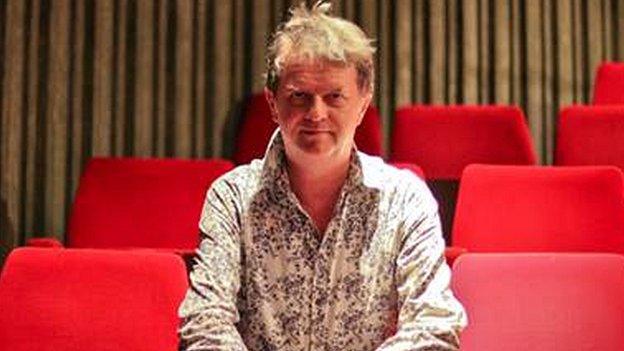
- Published18 October 2014
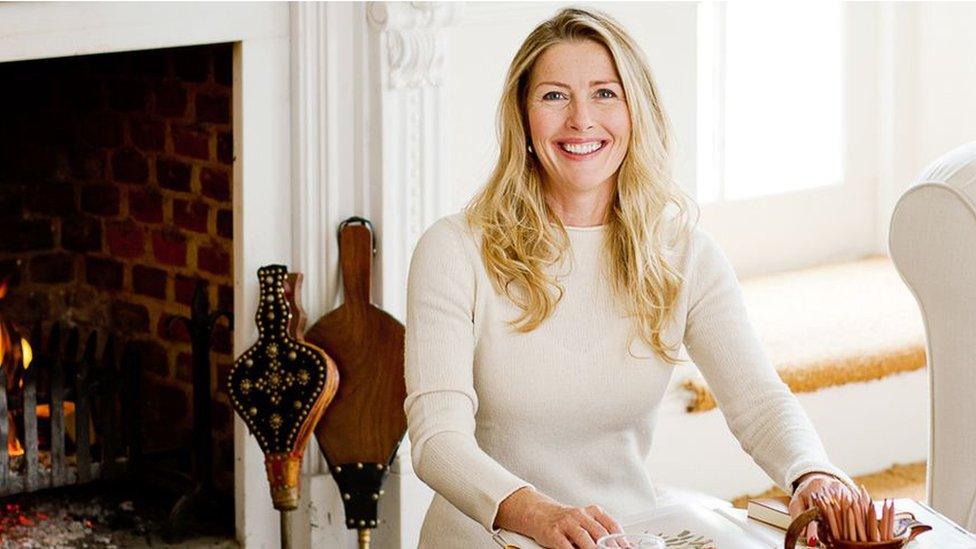
- Published11 October 2014
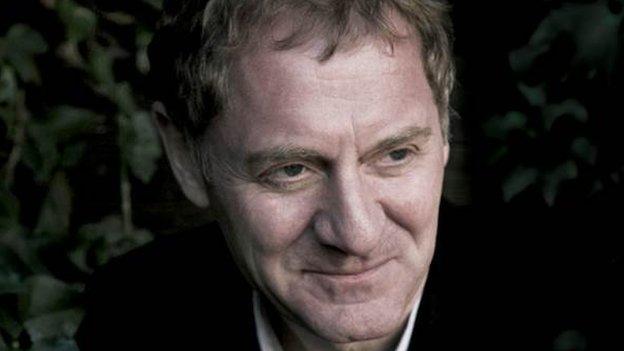
- Published4 October 2014
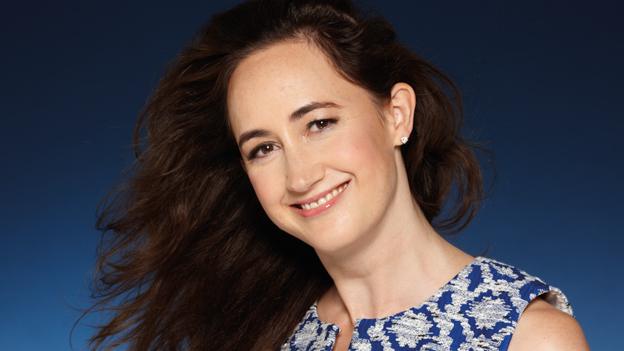
- Published10 May 2014
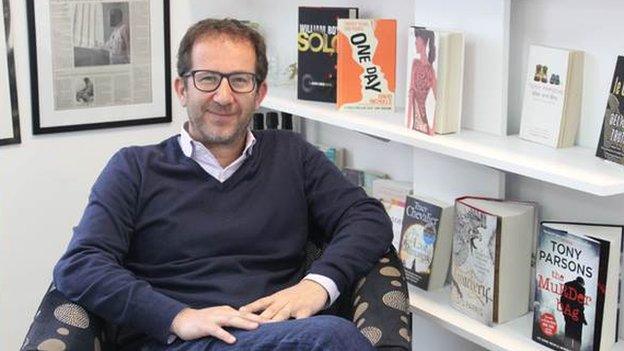
- Published17 May 2014
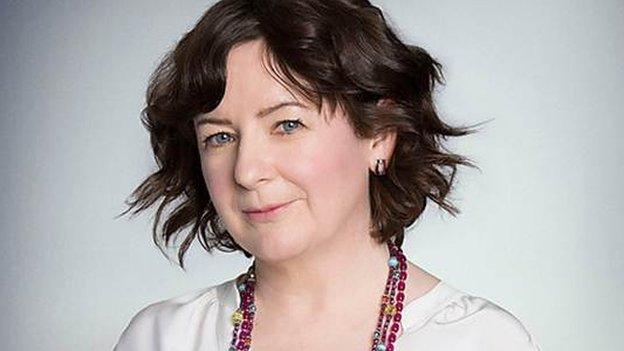
- Published9 November 2013
